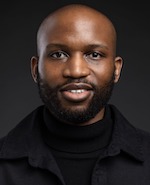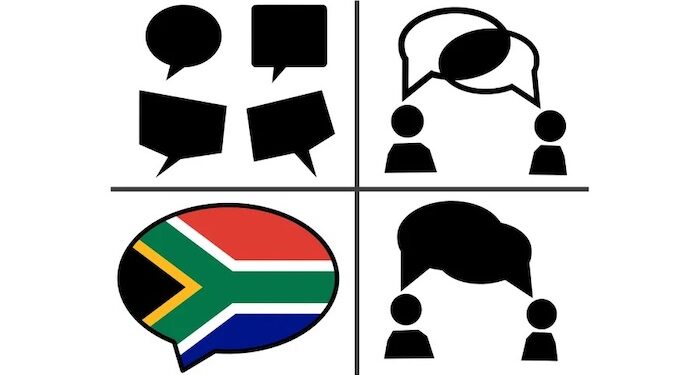With an unflinching and confident demeanour, President Cyril Ramaphosa assured millions of South Africans during his first State of the Nation Address in February 2018 that summits and forums would be facilitated for government, civil society organisations (CSOs), community-based organisations (CBOs) and non-governmental organisations (NGOs) to engage with each other.
Initial plans of these critical dialogues were established to mainly acknowledge the fundamental role the social sector plays in addressing social issues in South Africa, such as poverty, inequality, unemployment, substance abuse and gender-based violence.
This convening eventually materialised and took place in 2019, beginning with provincial dialogues and roundtables to better understand the sector’s challenges and successes.
It was followed by a Presidential Social Sector Summit hosted by Ramaphosa. These gatherings highlighted the need for robust partnerships between government and civil society, laying the groundwork for more inclusive, effective social action.
Public scrutiny
Now in 2025, a similarly styled dialogue is drawing intense public scrutiny, with growing criticism that it represents performative governance cloaked in the language of civic participation.
Presented as a nation-building platform representing 200 organisations across 33 sectors, the state-facilitated National Dialogue is set to begin with a National Convention from the 15th to the 17th of August, 2025.
The media framing of this event reveals a mix of optimistic, sceptical and deeply concerned voices. Many of these challenging viewpoints have been shared through social media platforms, press statements, TV news discussions, published op-eds and talk radio interviews.
The messaging has shaped public perception, casting the dialogue variously as a beacon of civic renewal, a political manoeuvre, or, at its worst, a distraction from systemic failure.
A fresh start?
From the outset, Ramaphosa hailed the National Dialogue as a “people-led, society-wide process” with a civic participatory effort to shape the nation’s future, anchored in the National Development Plan and Vision 2030.
Intended to map the way forward and set up a citizen-led steering committee, it’s pitched as a fresh start amid the country’s deepening socio-economic crises. Dissenting voices, admirable in tone but with scathing undertones, alert us that this may be more show than substance.
Initial participants (like the Steve Biko and Thabo Mbeki Foundations) pulled out, arguing the convention is rushed, underfunded, poorly planned and veering toward government control rather than citizen ownership.
Build One South Africa (BOSA) described the dialogue as a “positive and necessary step” amid political turbulence, advocating for transparency and citizen-centred governance. The Democratic Alliance (DA) and Ramaphosa’s coalition partner have withdrawn from the dialogue due to conflicts over representation and ministerial dismissals. Still, the DA remains in the coalition for now.
Or elitism?
Other detractors across the spectrum point to elitism. Seth Mazibuko, a veteran of the anti-apartheid movement, warns that the process echoes the CODESA-era deals as it’s orchestrated by insiders, without meaningful input from today’s grassroots movement, especially youth and poor communities.
Meanwhile, the Labour Party sought to interdict the dialogue in court, labelling it unconstitutional, duplicative, elitist and fiscally irresponsible at an estimated cost of between R700 to R800 million amid widespread deprivation.
The media framing of the dialogue is sharply divided. Optimists herald it as a hopeful reset and an opportunity to unify and envision a shared future. Sceptics see it as a costly political theatre risking deeper alienation by excluding everyday voices and failing to commit to real social change.
National introspection
How the process responds to these critiques (by cutting costs, building transparency, including marginalised groups and binding outcomes to action) will determine whether this dialogue becomes a genuine breakthrough or another hollow exercise in national introspection.
In framing the dialogue, the media both reflects and influences public sentiment. It acts as a battleground for competing narratives.
Thus far, the coverage of this dialogue has also highlighted South Africa’s complex media ecosystem, where traditional print, broadcast and digital platforms each bring different editorial slants, levels of access, and audience priorities.
Constructive or more empty promises
Crucially, alternative media, community radio, and social media influencers are amplifying grassroots voices often ignored in national debates.
Ultimately, the dialogue will not only be judged by what is said at the table but by how the nation’s many voices are heard, framed and remembered. The news media must interrogate not only the messaging, but the process itself: Who governs the narrative? Who is sitting at the table, and who’s still sitting on the sidelines?
After all, for meaningful social change, the National Dialogue must mirror South Africa’s social realities, not just its aspirations. Can it constructively re-engage a disillusioned public, or will it be one more symbolic gesture in a political culture rife with empty promises?
 Banathi Mgqoboka is an award-winning, Cape Town-based multi-platform journalist, writer and researcher in the areas of contemporary social realism and critical media analysis, bridging academic and non-academic critical discourse. He holds a Master of Arts (M.A.) degree from Rhodes University’s School of Journalism and Media Studies, where he was a research scholar in the National Research Foundation (NRF) ‘Licence to Talk’ Project.
Banathi Mgqoboka is an award-winning, Cape Town-based multi-platform journalist, writer and researcher in the areas of contemporary social realism and critical media analysis, bridging academic and non-academic critical discourse. He holds a Master of Arts (M.A.) degree from Rhodes University’s School of Journalism and Media Studies, where he was a research scholar in the National Research Foundation (NRF) ‘Licence to Talk’ Project.














